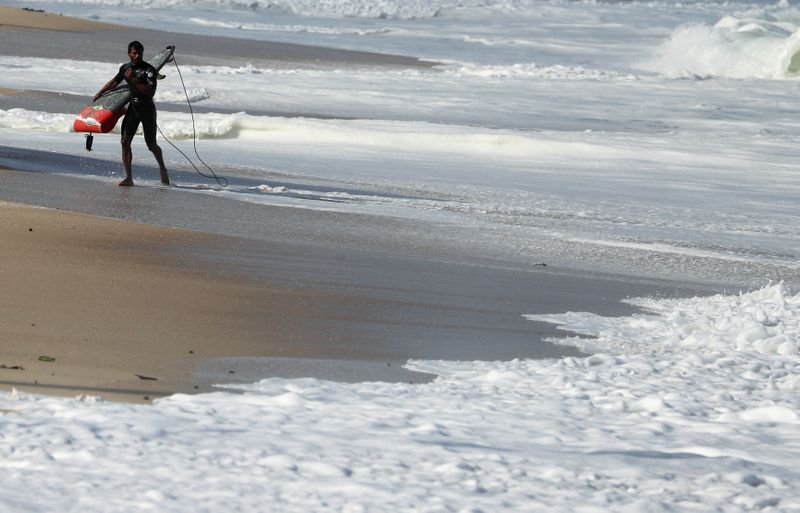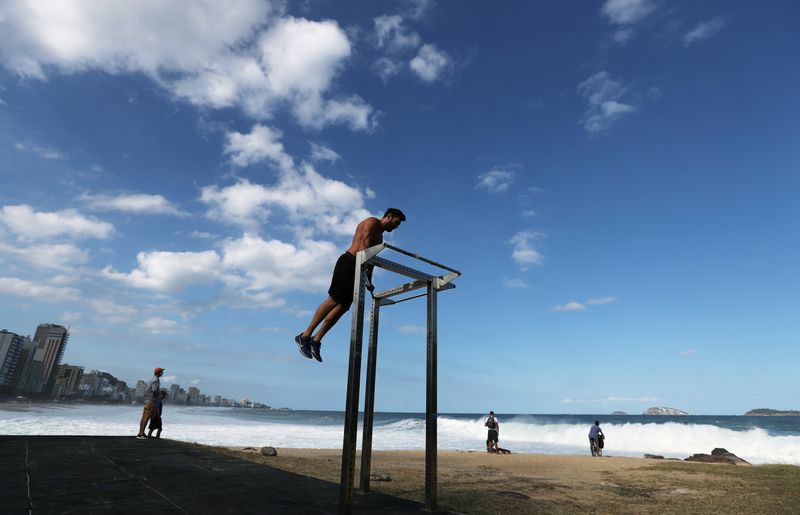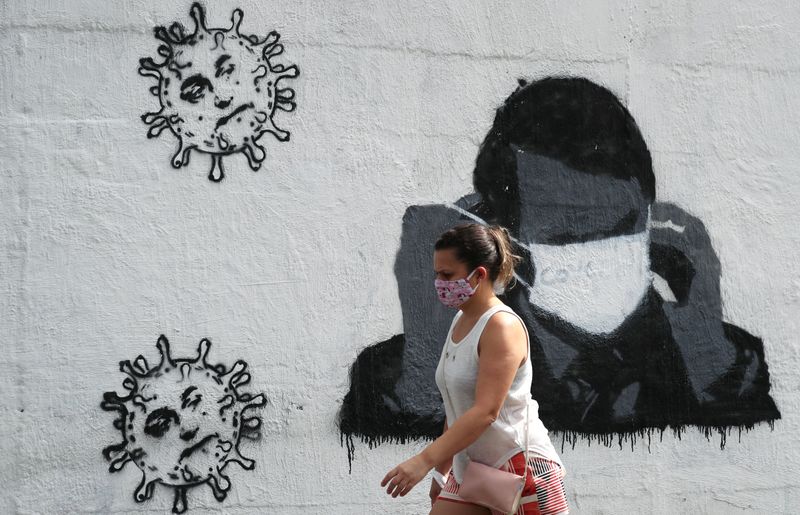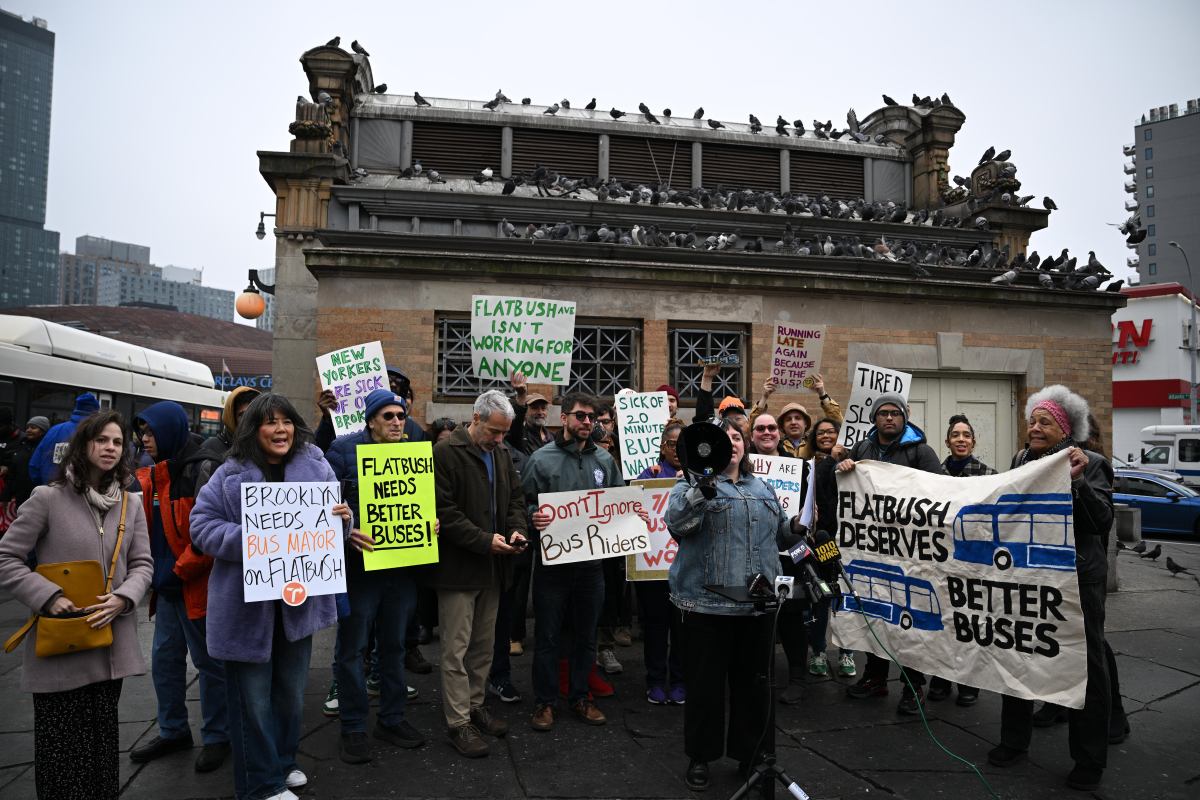RIO DE JANEIRO (Reuters) – In Rio de Janeiro on Thursday, residents could once again run along the beaches and drink a chilled coconut water at the kiosks that line the sand, as Brazil’s second city tried to return to some normality despite a heavy coronavirus death toll.
Cariocas, as Rio’s inhabitants are known, went to bars, restaurants and gyms that are now allowed to operate again in the latest stage of reopening that had some experts worried about a new wave of infections. The beaches remained closed for sunbathing, but opened for individual exercise.
“It is a relief and provides hope that things can get better,” said Flavio Vicente, 38, as he worked out on Copacabana Beach.
Brazil has the world’s second largest outbreak behind the United States, with the country’s death toll passing 60,000 on Wednesday.
In Rio alone, 6,618 people have died of COVID-19 in the past four months. Only 14 countries in the world have a death toll higher than the city. Public hospitals are at 70% capacity.
At a restaurant in Copacabana, Fernando Melo said he was relieved to be back at work.
“They were difficult days at home, without doing anything, without money,” he said. “We are returning slowly with the hope of better days in this new normal.”
City Hall has laid out various public health criteria to try and ensure a safe return to business, such as limiting capacity and requiring people book spots in advance, but medical experts still fear the move may have come too soon.
“The opening was hasty. We are seeing a drop in deaths, but it doesn’t mean that at the first sign of a fall it is safe open,” said Américo Cunha, a professor at Rio’s state university UERJ who has monitored the outbreak.
“I can categorically say that the contagion is already rising because of this opening,” he added.
Rio, he explained, still has an elevated number of daily deaths showing the virus remained highly active.
From Sunday until Wednesday, Rio registered 252 deaths due to COVID-19 according to the Ministry of Health.
(Reporting by Pedro Fonseca and Rodrigo Viga Gaier, writing by Stephen Eisenhammer; Editing by David Gregorio)


























